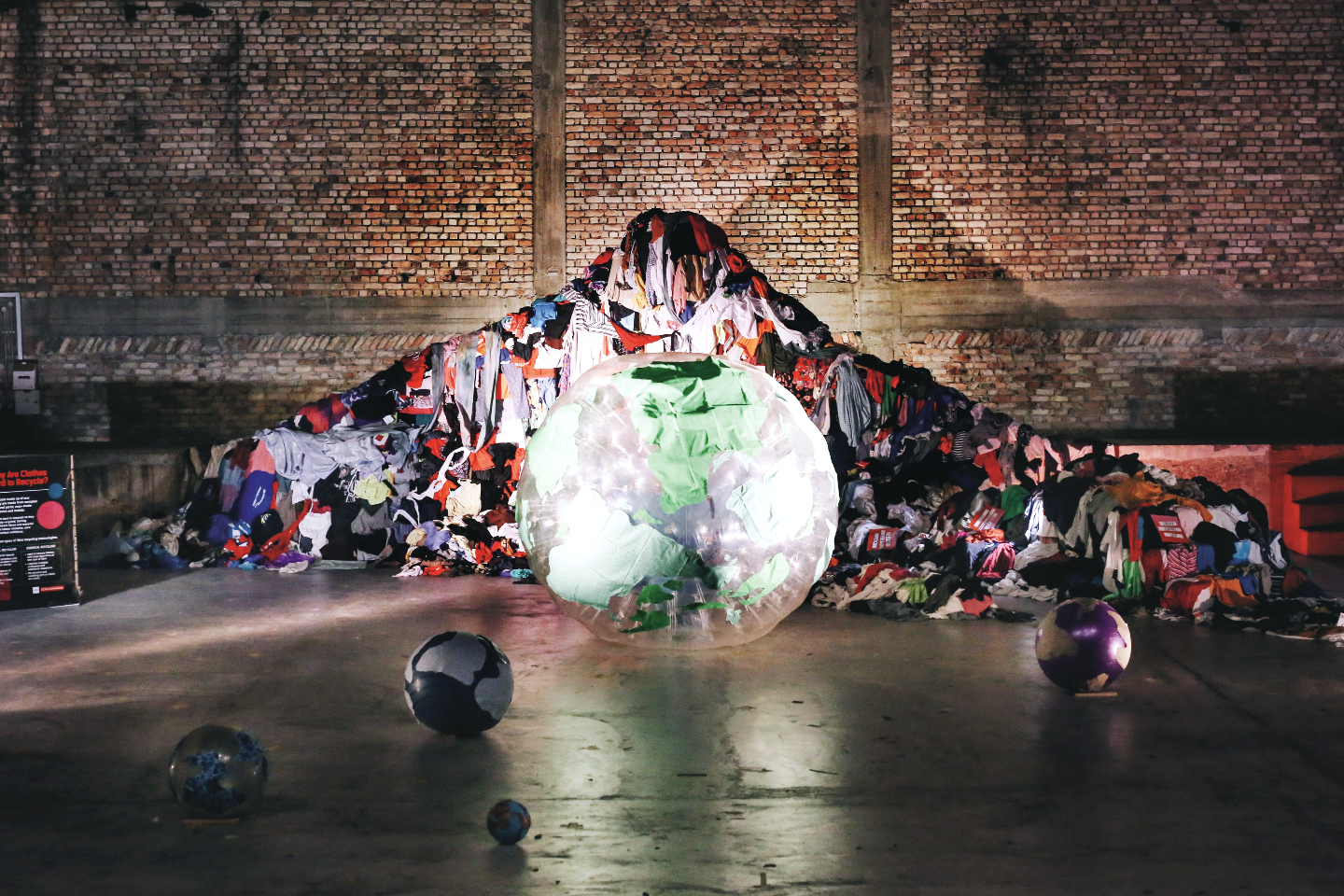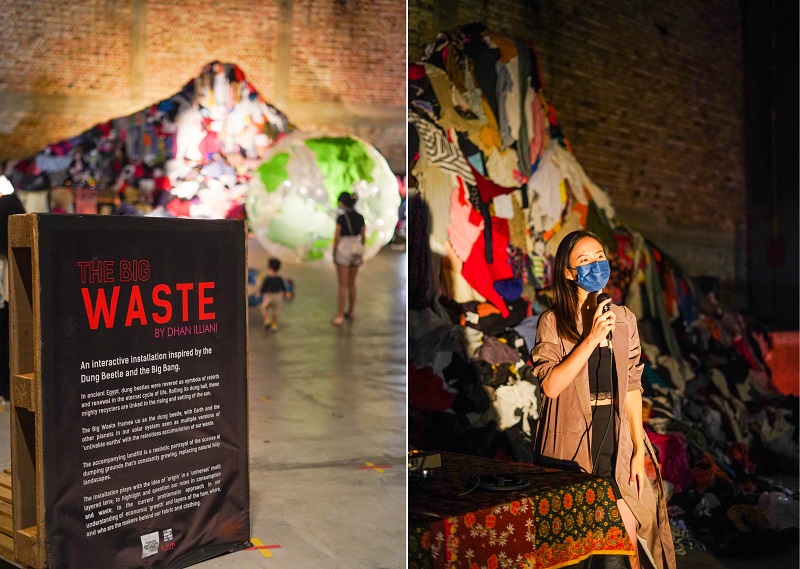
Dhan Illiani’s interactive installation titled The Big Waste is inspired by the dung beetle and The Big Bang (All photos: Fashion Revolution Malaysia)
Do you know who makes your clothes and what is in them? Are you aware that the mainstream fashion industry exploits labour as well as natural resources? What would you say if someone told you she has not bought a new item of clothing for five years and still dresses well?
These are questions Fashion Revolution hopes will provoke consumers to pause before reaching for what is on the rack, examine issues hidden by marketing spiel, learn ways to make loved clothes last, and be part of the global action to stop fashion waste.
Malaysia is one of 92 countries involved in this movement that campaigns for a clean, safe, fair, transparent and accountable fashion system through research, education and advocacy. Advocates call out the inequities and social and environmental abuses in the supply chains, and challenge the status quo with solutions and alternative models.
Fashion Revolution, founded in 2013, debuted in Malaysia four years later. Fashion Revolution Week is held every year, coinciding with April 24, the anniversary of the Rana Plaza disaster in Bangladesh. The building, which housed garment factories manufacturing clothing for many global fashion brands, collapsed in 2013, killing 1,134 workers and injuring more than 2,500.
This year’s theme, Money Fashion Power, highlights the point that “big brands and retailers produce too much too fast, and manipulate consumers into a toxic cycle of overconsumption,” says Melissa Tan, country coordinator of Fashion Revolution Malaysia and the EarthDay.org ambassador for the country.
“Meanwhile, the majority of people who make our clothes are not paid enough to meet their basic needs, and already feel the impacts of the climate crisis, which the fashion industry fuels.”
The week of April 19 to 24 saw interactive in-person and online events held at REXKL, among them sustainable fashion workshops (such as upcycling denim and weaving tees), insightful community onversations called Stitch & Bitch — a cross between a roundtable discussion and a mending circle — on greenwashing, the thrifting phenomenon, heirlooms and heritage, and spirituality and sustainability; clothes swaps organised by The Swap Project; and an exhibition by multi-disciplinary artist Dhan Illiani, a member of the Projek Rabak collective currently taking part in the 2022 Venice Biennale.
Dhan’s interactive installation titled The Big Waste, inspired by the dung beetle and The Big Bang, features a giant Earth made with plastic and fabric, other planets in the solar system as multiple versions of “unliveable earths”, and a clothing landfill in the shape of a mountain range, showing how natural landscapes have been replaced by waste — a reference to news reports that 39,000 tons of fashion discards were dumped in Chile’s Atacama Desert last year.
fashion_revolution_week_rex_kl.jpg

Fashion Revolution Week is run fully by volunteers, says Tan, a TV host and producer and former model, which puts her up close with “the sheer amount of fast fashion we are churning out” and brands and retailers making people buy clothes they don’t need.
There is a lack of originality, she says. “We are making the same things over and over, and consumers are spending more buying and discarding fast fashion soon after rather than investing in loved, ethically made pieces for the long term.” With growing awareness of how retailers use cross promotions, bundling and influencer looks to hook people, and how prices do not reflect the true cost of an item — such as the production process, worker safety and how much they are paid — Tan “jumped into the rabbit hole of sustainability” and started changing her lifestyle step by step.
“I live zero waste — I have not shopped for new clothes in five years — but I show people how we can all still dress really well and look good without fast fashion.” Buying one piece of clothing with intention brings more joy than grabbing 10 pieces a month and end up chucking them away soon after, she adds.
The move towards a healthier relationship with fashion is gaining momentum, Tan notes, buoyed by sustainability awareness as the climate crisis becomes more urgent. She hopes that with education, activation and action, consumers will peel back the layers of what they put on and get to the transparent facts about money, fashion and power.
For details on Fashion Revolution Week, see here.
This article first appeared on Apr 25, 2022 (Spring/Summer 2022 issue) of The Edge Malaysia.


